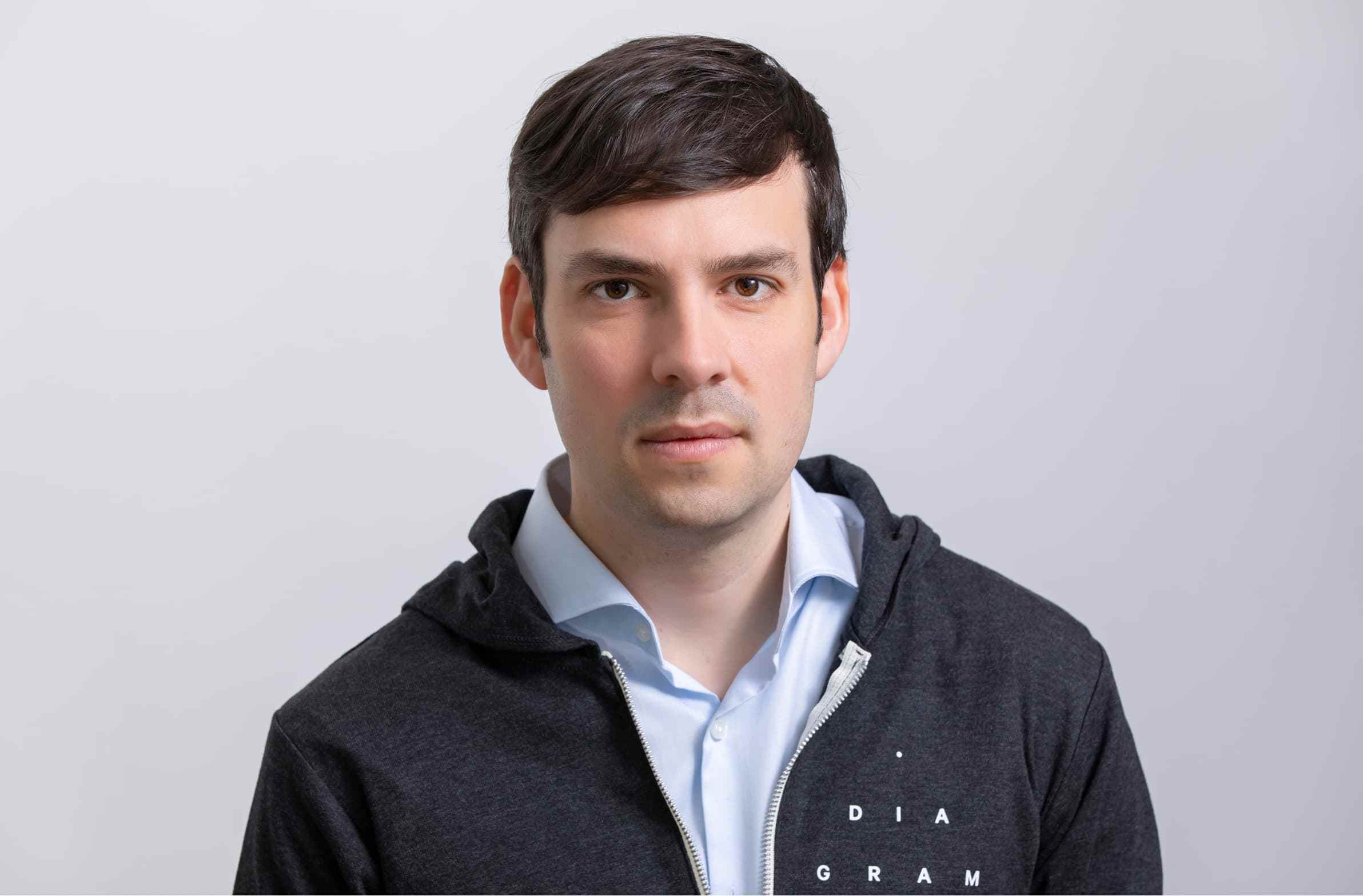Canada as a place to build
Feb 25, 2020

Building in Canada and specifically Montreal has always been a personal mission of mine
As a Montreal-native who spent a good amount of time in close proximity to Silicon Valley during my graduate studies at Stanford, I had exposure to the culture of big ideas and fell in love with entrepreneurship. Despite my informative experiences at Stanford, something drew me back to Canada. I knew that there was work to be done and I felt a responsibility to direct my new-found knowledge and experiences back to my home country. Montreal has not always been a start-up hub with an abundance of seed capital, but looking back at the journey the ecosystem has been through to evolve into a place of huge opportunity, I know I made the right choice in setting up Diagram in Montreal.
Over the last decade, the face of the fintech world has seen fundamental shifts, with Canada’s market adoption rate standing 50% higher than the U.S., France, and Japan. The trend is not only explained by the uptake in startups but an increasingly active banking sector that is playing catch-up to new-found ways to innovate the way we plan, organize and invest finances. Coupled with the increasing role banks are playing in supporting the development of fintech, the skyrocketing rates in investment have catalyzed opportunities for growth.
The uptake in this trend is something that has been really exciting to watch because a lot of people assume that Silicon Valley is where start-ups either triumph or perish. This could be far from the truth. While it is undeniable that the U.S. generates the largest amount of start-ups and venture capital activity, its global share in output is slowly decreasing giving other tech hubs the chance to offer an alternative to the high costs of operation that are required to survive in Silicon Valley.
One alternative is Montreal. The inciting operating costs, government incentives and research and development grants make Montreal a thriving hub of ideas and investment. Coupled with affordable rents and a universal health care system, low operation costs for both employers and employees allows for resources to be directed inwards, towards what really matters: the talent that transforms ideas on a paper to multi-million dollar businesses.
A huge plus I have experienced while recruiting for Diagram is the diversity in qualified, down to earth and affordable talent that is available in Canada. The Canadian immigration system is set up to curate a highly educated and experienced workforce that pertains to the specific needs of the fintech industry. This is especially true for Montreal which boasts world-renowned universities that produce software engineers, developers and STEM graduates all of which offer a selection of candidates that respond to the demand for specialized labor. From my perspective, though Canada’s ecosystem is in its early stages, it shows real promise. Secular trends that make the incumbent start-up hub cities more difficult to enter for young talent means that the infrastructure that is currently being built to support the tech community in Montreal will pay off.
The abundance of seed capital, access to talent and with startups growing from strength to strength, the Canadian entrepreneurial landscape is well on its way to making a huge mark on the fintech industry. Diagram’s formula has been at the forefront of this environmental shift and has transformed what it means to be a Venture Builder. By placing risk-vetted bets on a few internally developed ideas, Diagram has been the champion behind some of Montreal’s big success stories.
Founded in 2016, Dialogue was born with the mission of making healthcare more readily accessible to the Canadian workforce. Since 2018, the company has expanded its reach by threefold with 300,000 Canadians having access to its services. Examples of Dialogue’s ability to expand beyond the Canadian market can be found in its partnership with Doctor on Demand and its recent acquisition of ARGUMED, a German Occupational Health and Saftey (OHS) service provider. In three short years, Dialogue has been able to dominate the telemedicine industry and is responsible for reshaping access to the Canadian healthcare system.
Diagram’s Venture Builder formula has not only been successful in healthtech but an example can be made with Breathe Life, an insurtech company that is changing the way consumers purchase insurance. The software fueling the company model aggregates and analyzes data about purchasing habits and market trends and uses them to deliver the best quotes for consumers’ individualized needs. By harnessing the potential of data in transformative ways, Breathe Life is capturing new and underinsured markets and is democratizing financial security.
Diagram’s success with its portfolio companies is a metric for how conducive the Canadian entrepreneurial landscape has been to the building, scaling and, expansion of disruptive companies. More than anything, Diagram’s experience shows that building in Canada has never been more profitable. The encouraging growth that the ecosystem has experienced over the last few years means we’re likely to see big wins for ideas that break new ground both domestically and globally.
If you are an experienced tech entrepreneur looking to your next venture, reach out to us at hello@diagram.ca.
